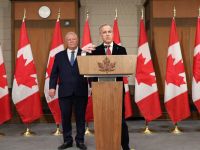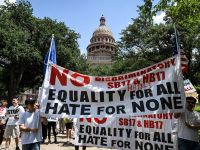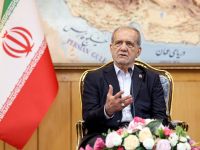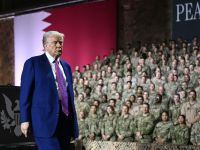No stranger to controversy, Venezuela's flamboyant President Hugo Chavez is leading a major push for OPEC unity that could fuel resentment among countries worst hit by skyrocketing oil prices.Chavez, 46, had already drawn the ire of the United States when he broke Iraq's international isolation and paid a visit to President Saddam Hussein in August.
The visit was part of a trip designed to drum up support for the September 27-28 summit of the Organization of Petroleum Exporting Countries (OPEC) that Chavez will host in Caracas. The summit, only the second in the cartel's 40-year history at the level of heads of state, will be held against a backdrop of growing international unease over skyrocketing fuel prices.
It will also spotlight Chavez's crusade for poorer countries to stand up to industrialized nations.Seen as a champion of the millions of Venezuelans who live in acute poverty in this oil-rich South American country, Chavez has frequently taken up the cause of impoverished and isolated countries, including those such as Cuba, Libya and Iraq, seen as pariahs by the United States.
"His perception is that he helped raised oil prices and brought importing countries to their knees," says Caracas-based political analyst Robert Botome.Last year, Venezuela played a key role in getting oil producers to agree to a series of production cuts to boost oil prices.
Chavez's push for unity among the 11 OPEC members marks a sharp reversal from past practice when Venezuela was among the cartel's most notorious quota busters."Chavez is convinced that OPEC is now in the saddle and that the instability of prices is a thing of the past," said Botome, who believes the hike in oil prices was not solely due to output cuts but largely to market conditions.
Chavez said last week he expected oil price to remain high for the next few months.While he insisted the prices were "fair," he said OPEC was ready to meet with the Group of Seven leading industrialized countries to discuss current crude prices.
OPEC's current president, Venezuelan Energy Minister Ali Rodriguez, said the heads of states attending the Caracas summit would not discuss prices but would look at broader issues.
He said that during the gathering, the first of its kind since the Algiers summit 25 years ago, OPEC would redefine "its principles and establish a base for future actions."Deputy foreign minister Jorge Valero, who is responsible for organizing the summit, said ties with OPEC were one of the pillars of Venezuela's foreign policy, which he said entailed rejection of international sanctions against members of the cartel.
Botome, the editor of the Veneconomia business magazine, said the summit would be yet another opportunity for Chavez to display the showmanship for which he has become famous."He will have his 15 minutes, for him that's important," he said.
But it remains to be seen just how successful Chavez will be in his drive for unity in a cartel that has lost much of the clout it once had and that is torn by internal divisions, such as the bitter row between Iraq and Kuwait. Chavez, who likes to spice his often lengthy and unusual speeches with quotes from the Bible, French poets and Latin American independence hero Simon Bolivar, will open the summit, together with President Abdelaziz Bouteflika of Algeria.
In addition to Saudi Arabia's aging King Fahd, the most controversial leaders in the cartel -- Iraq's Saddam Hussein and Libya's Moamer Kadhafi -- will stay away from the meeting, much to the relief of the US administration that has been cautious in its relations with Venezuela, the fourth largest exporter of oil to the United States.—AFP.
©--Agence France Presse.
© 2000 Mena Report (www.menareport.com)







